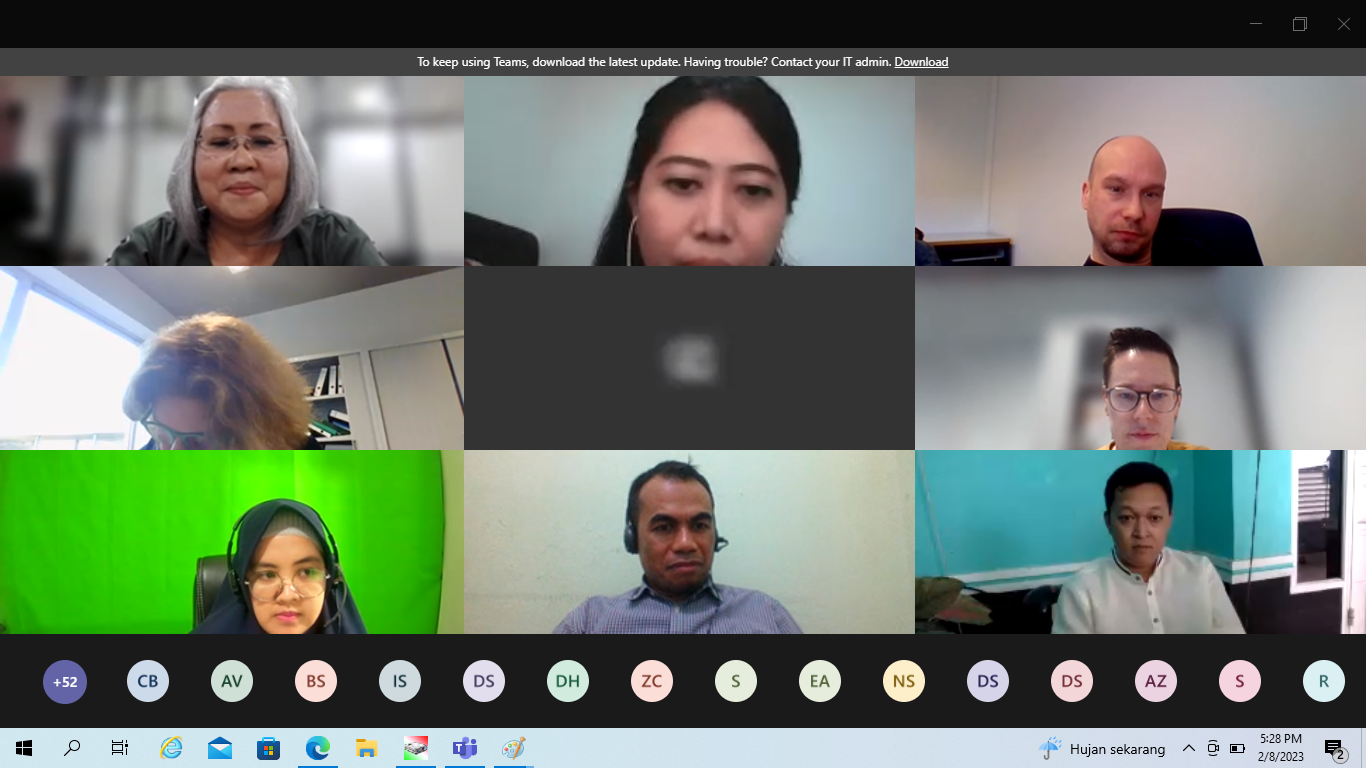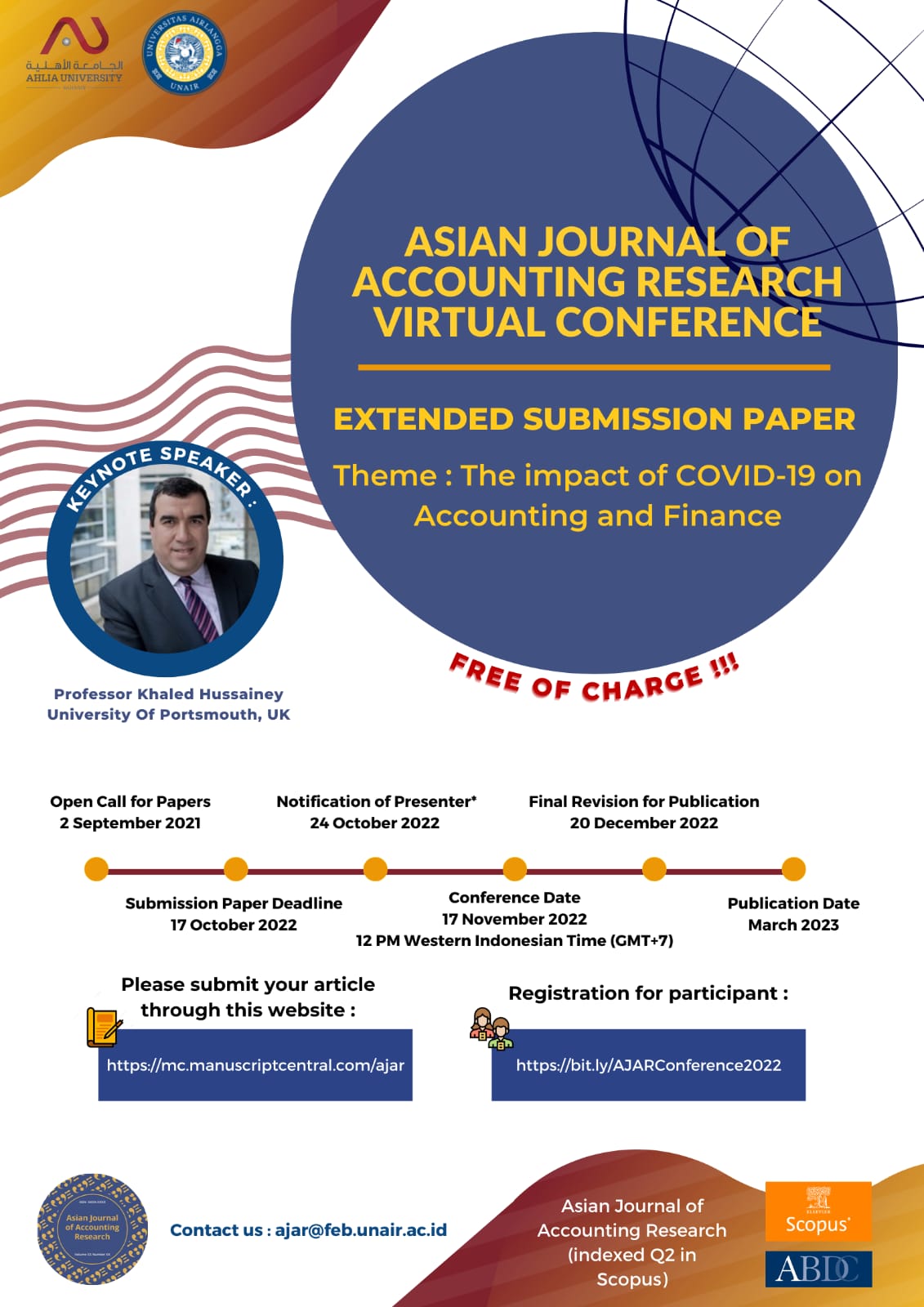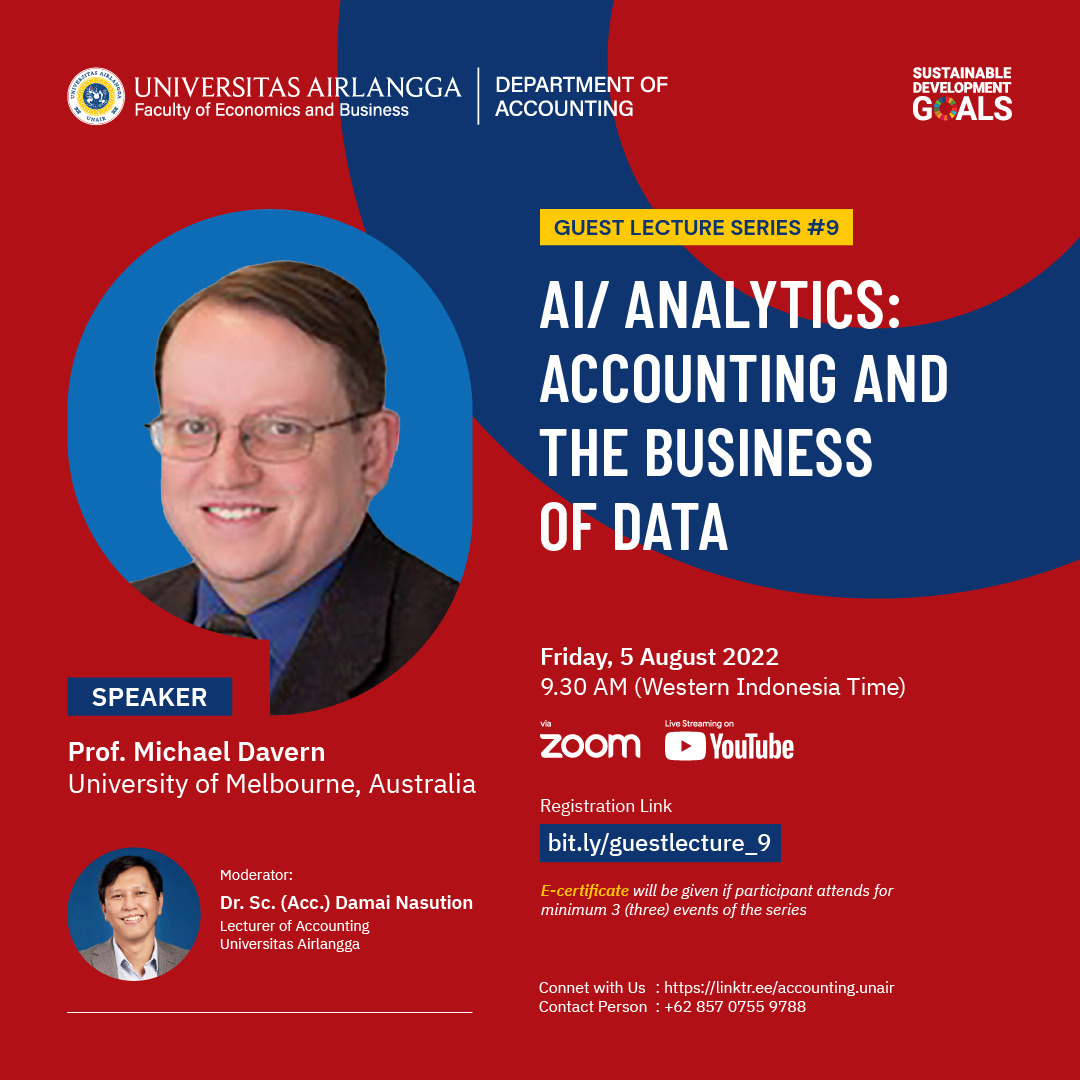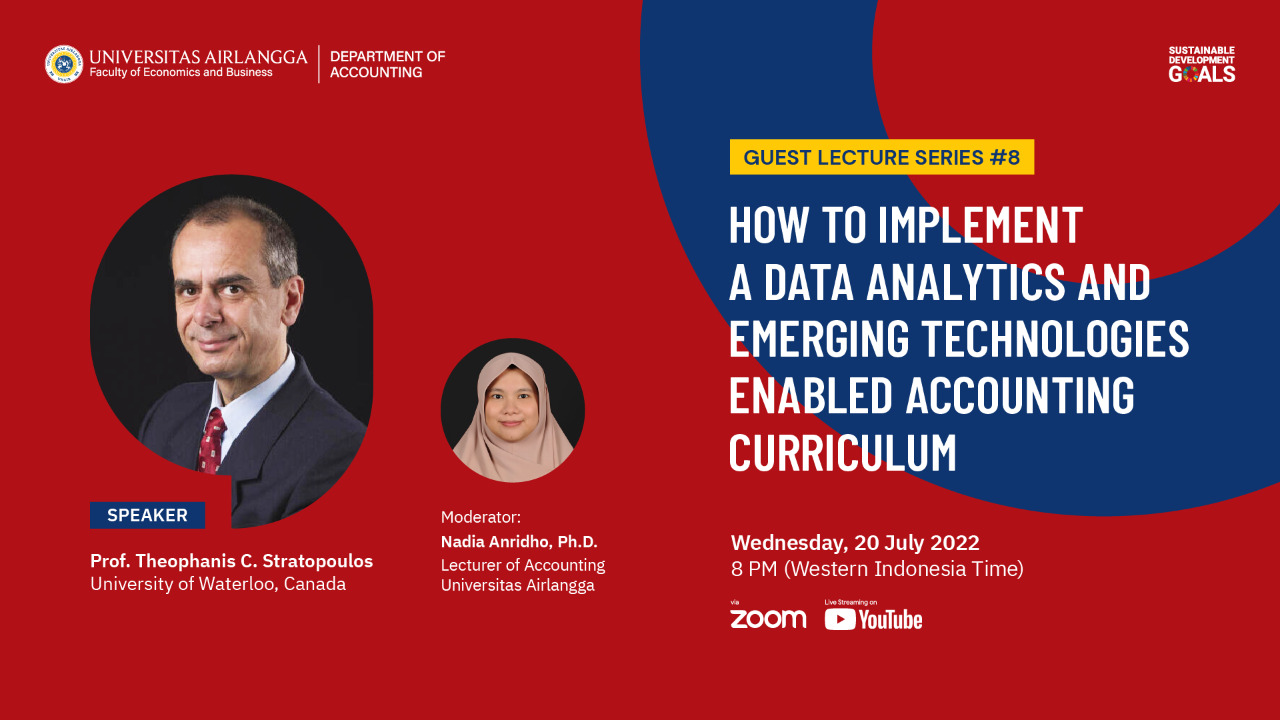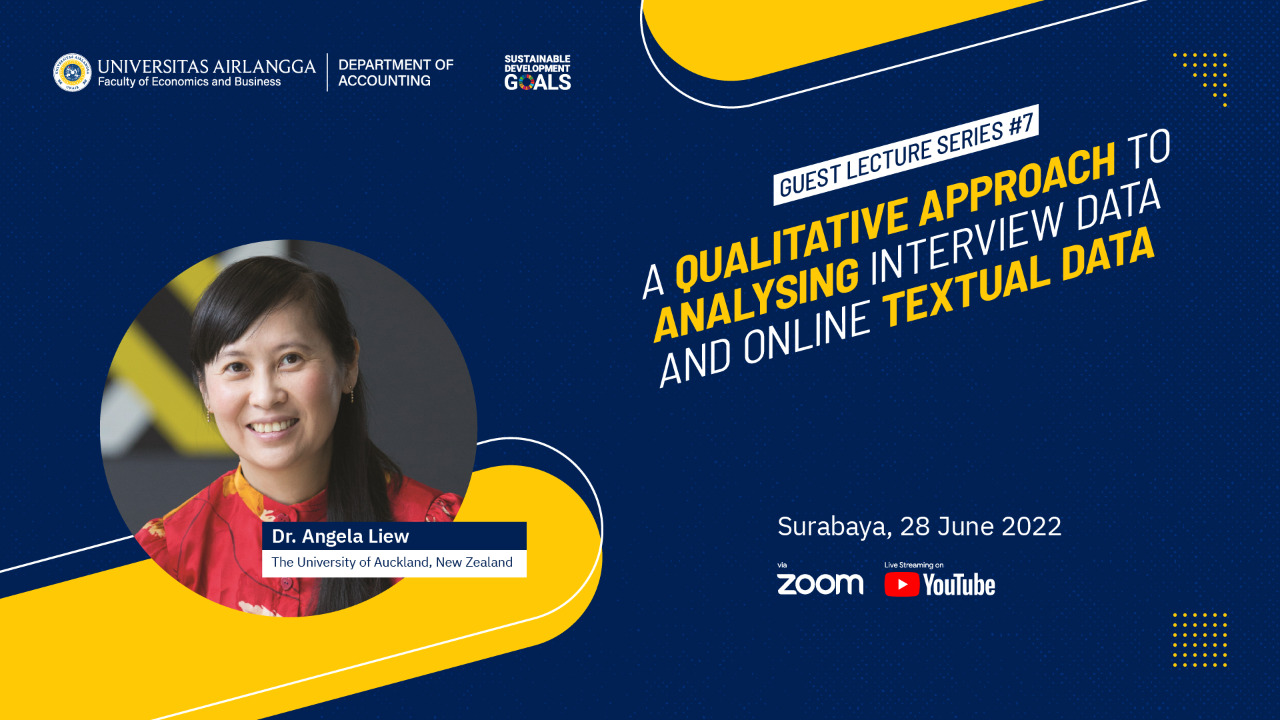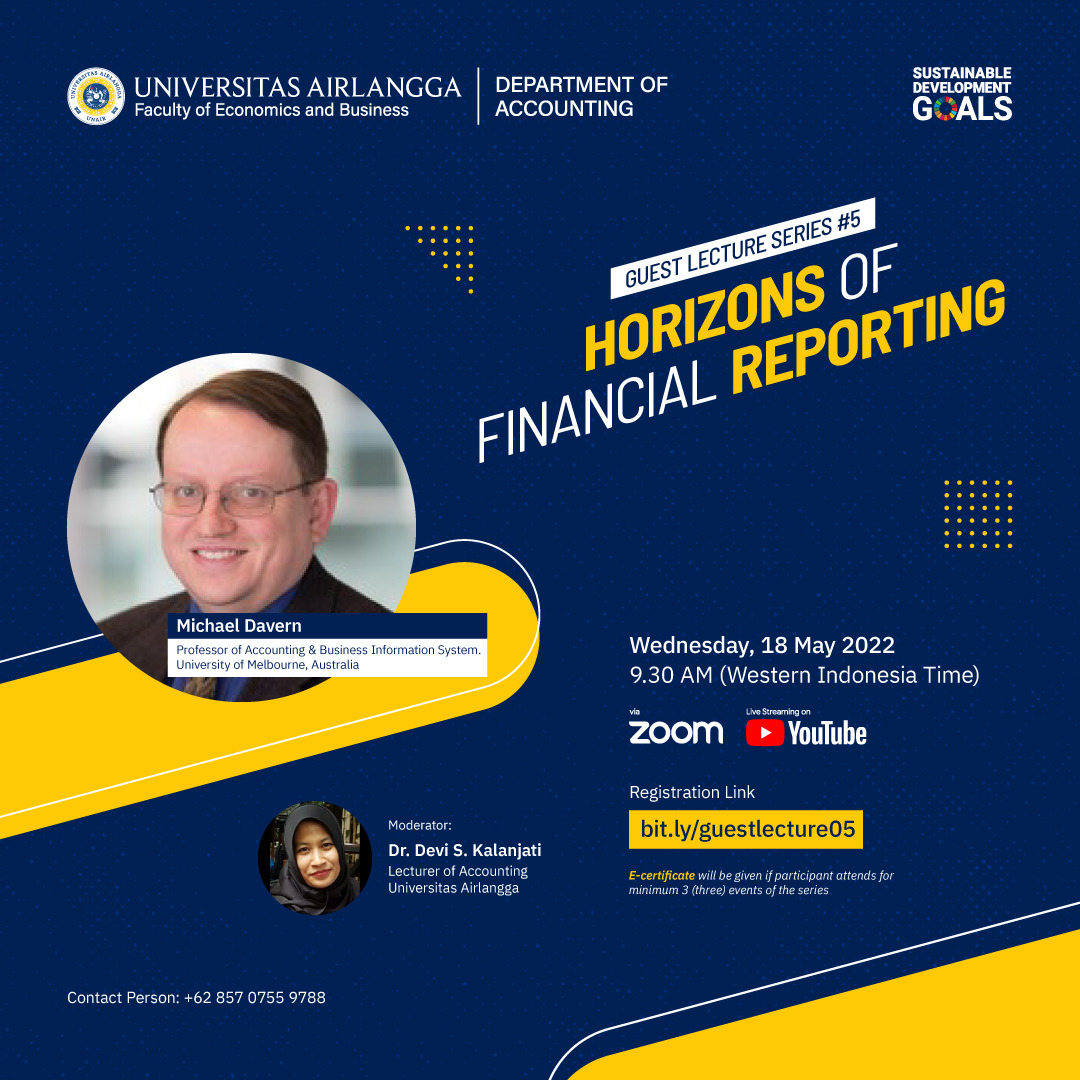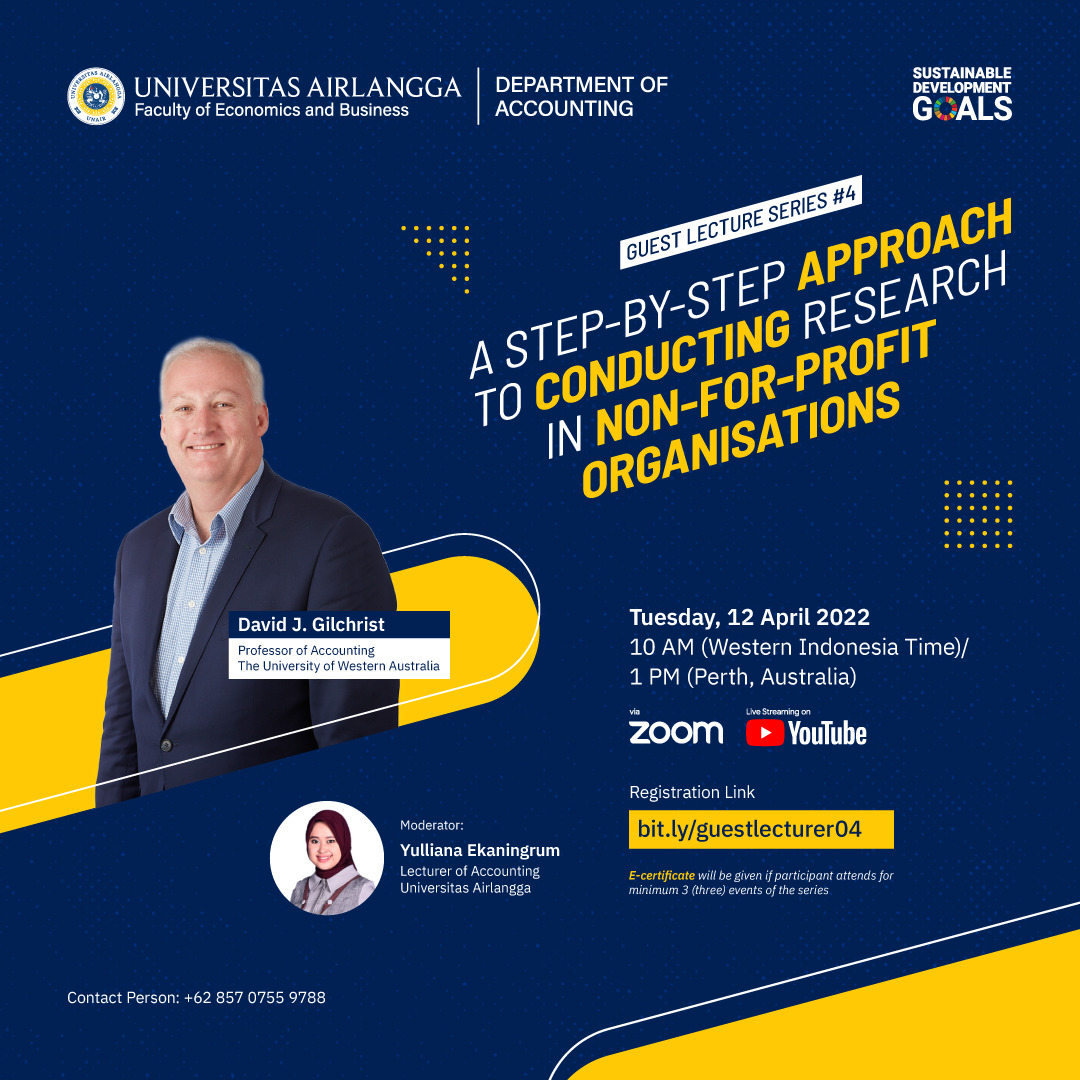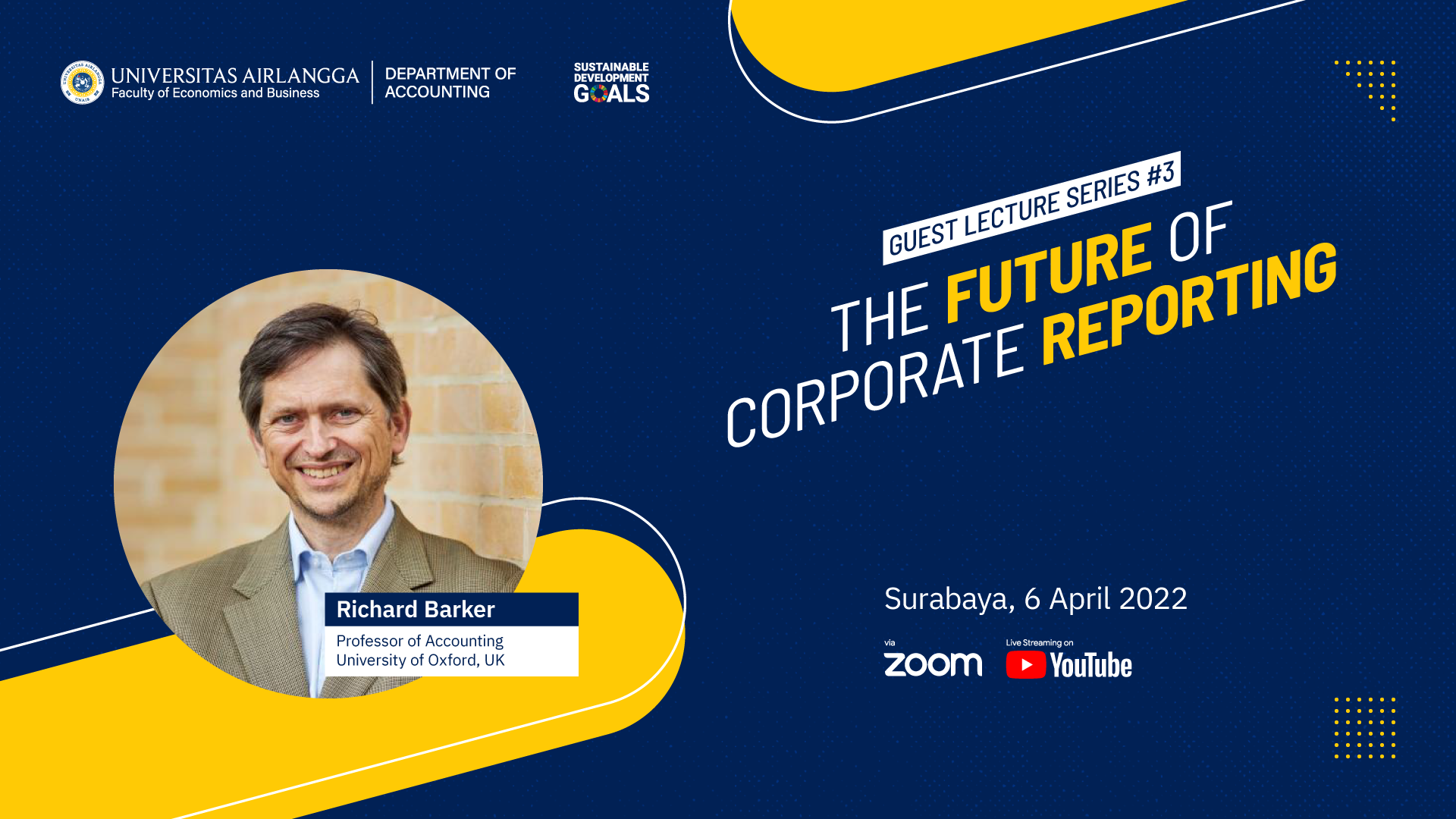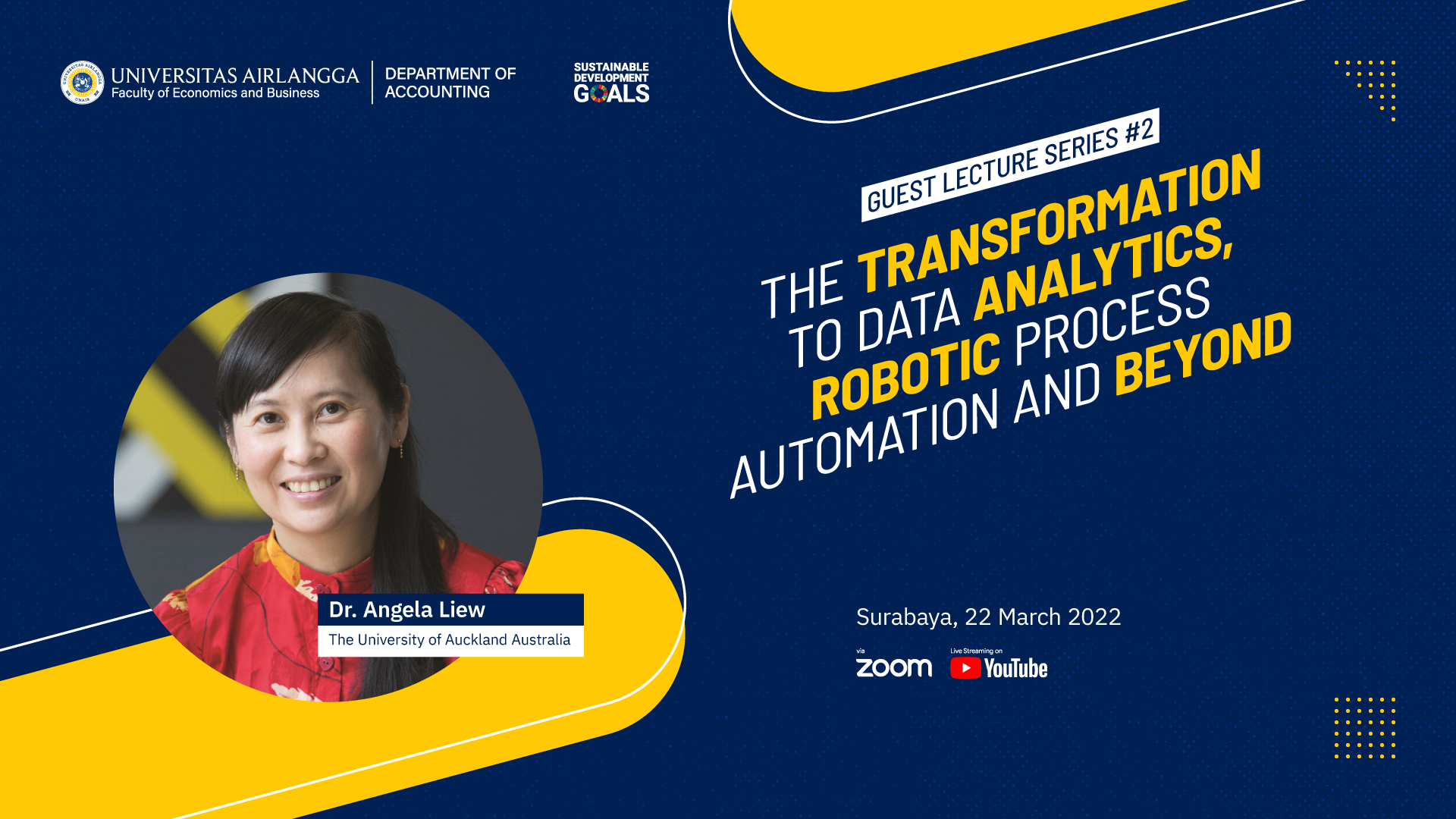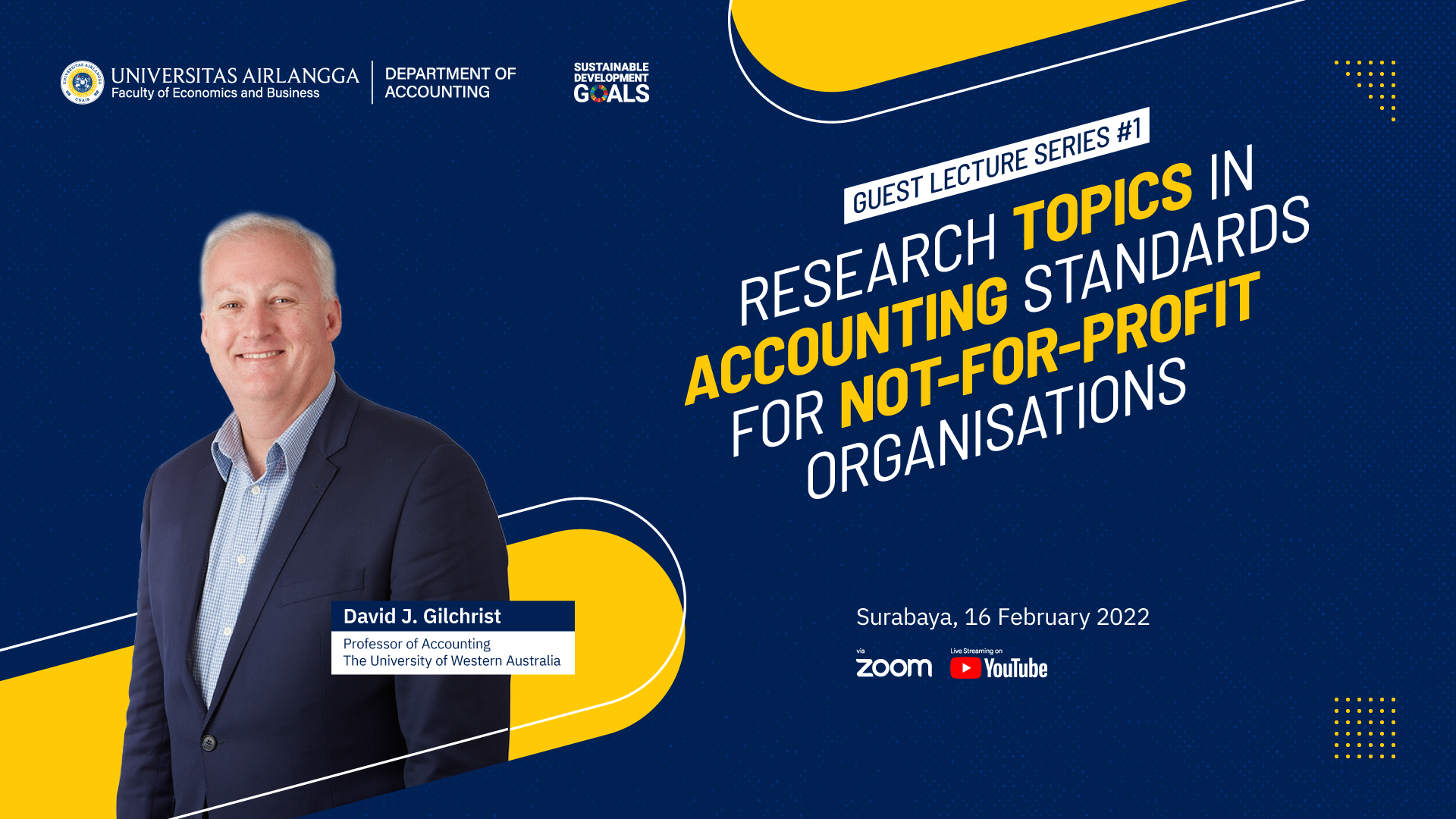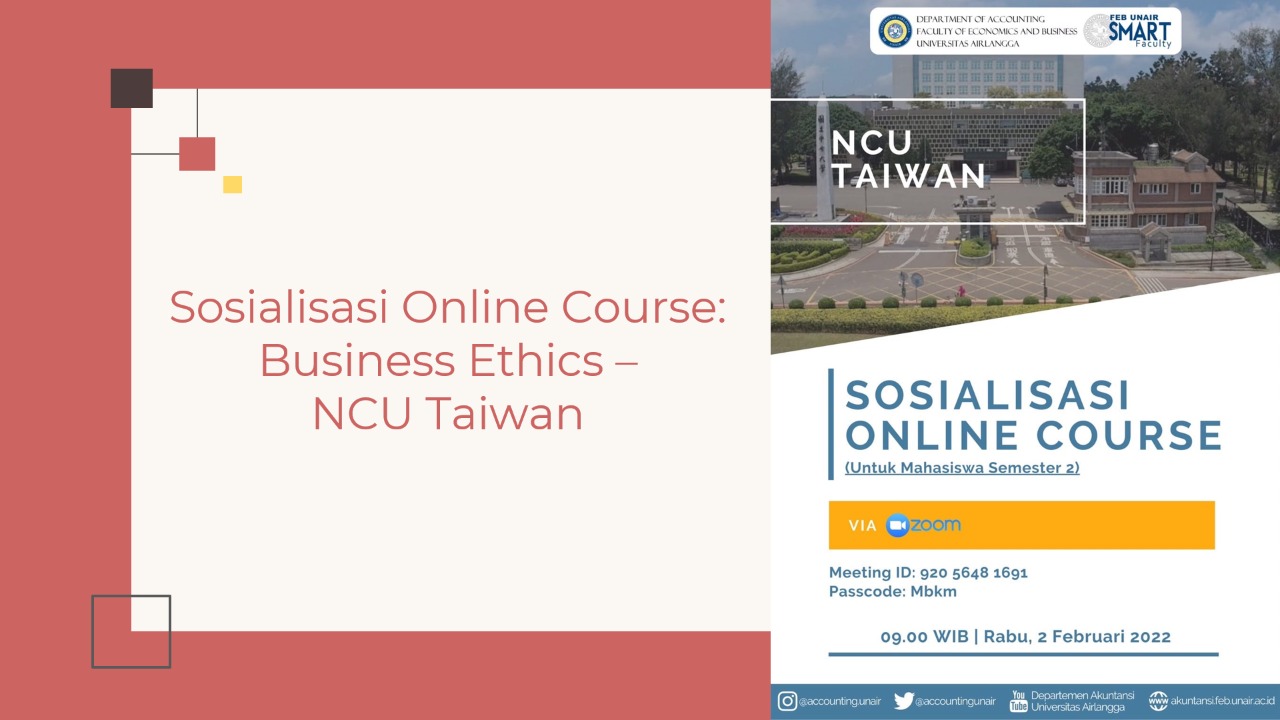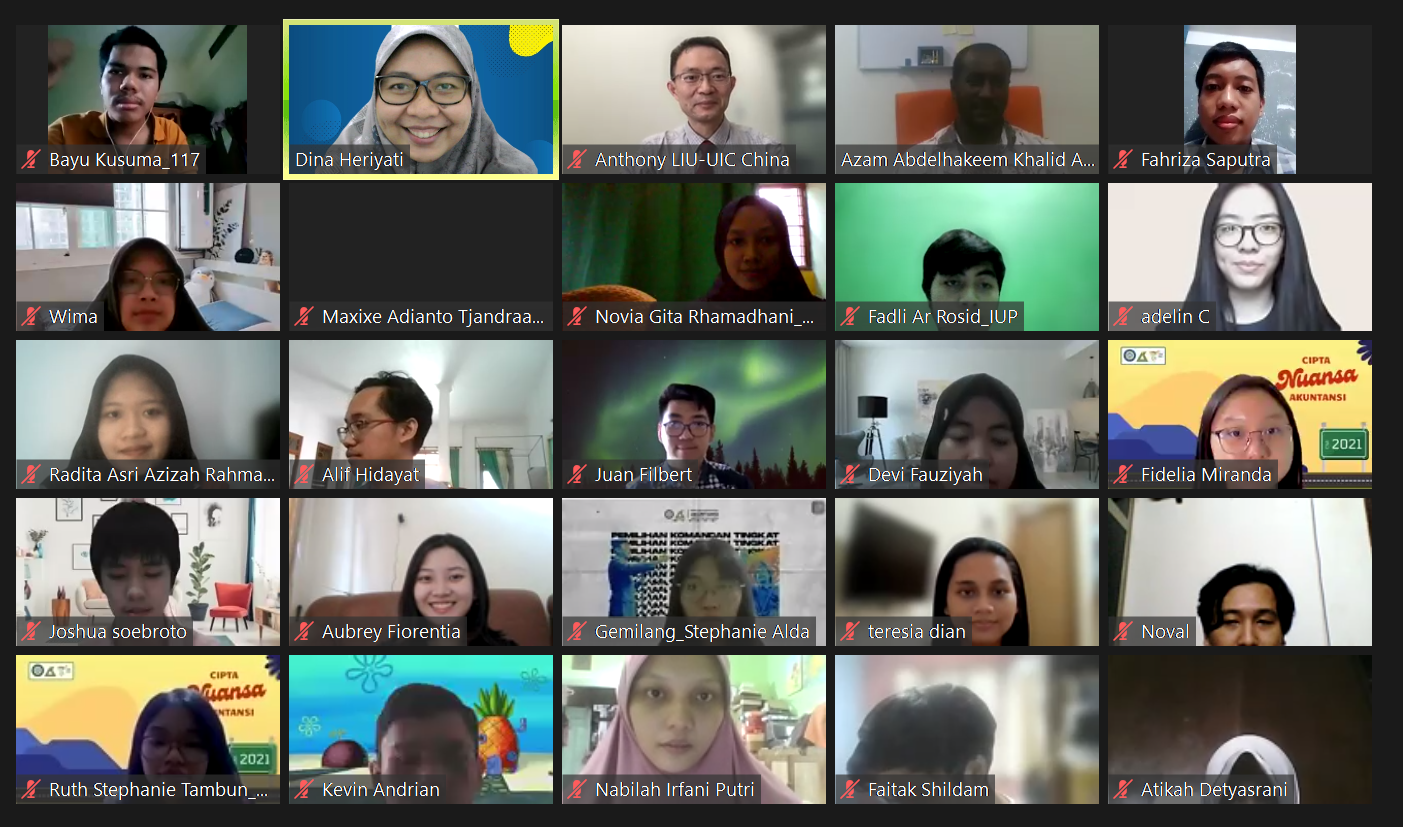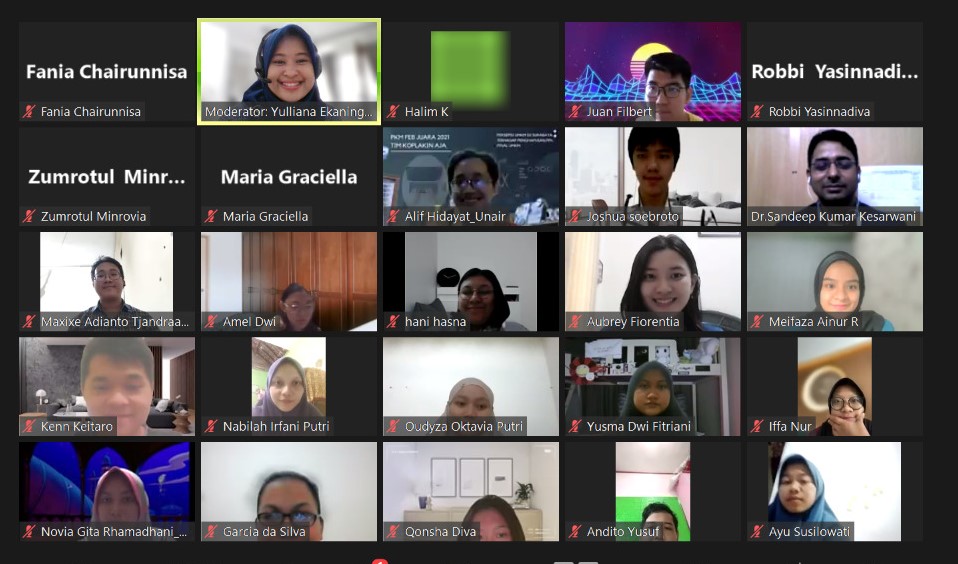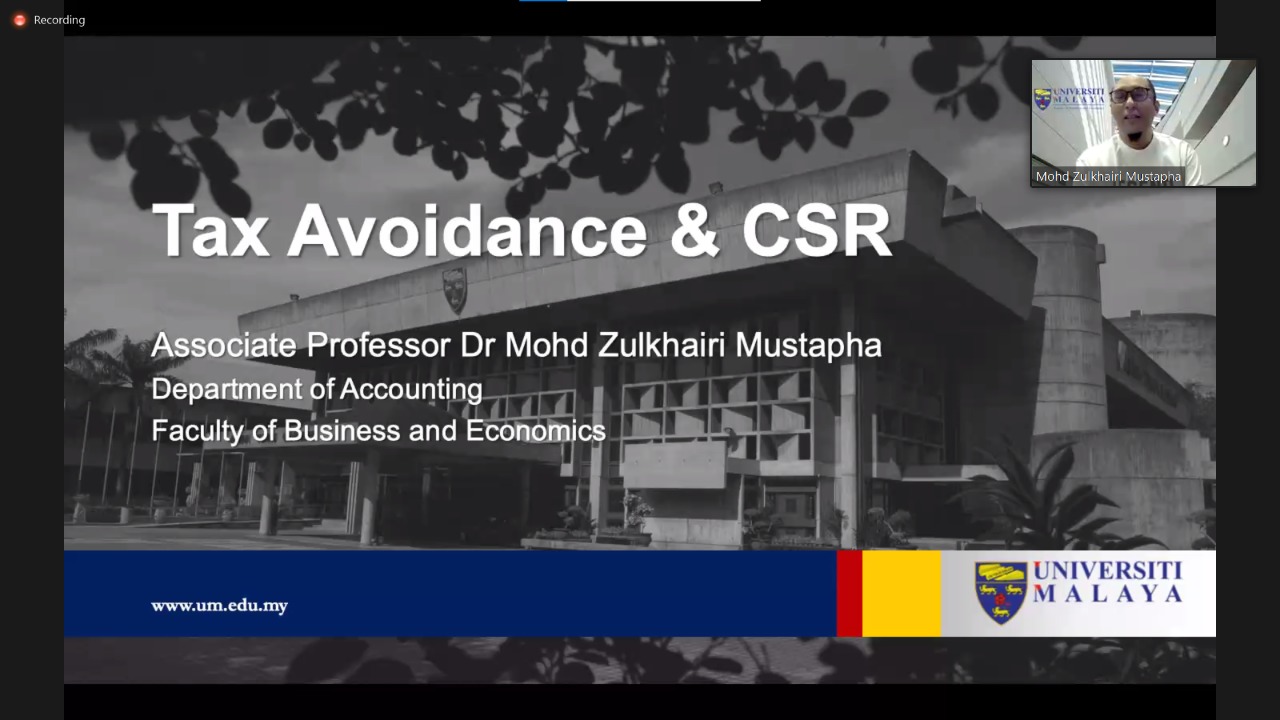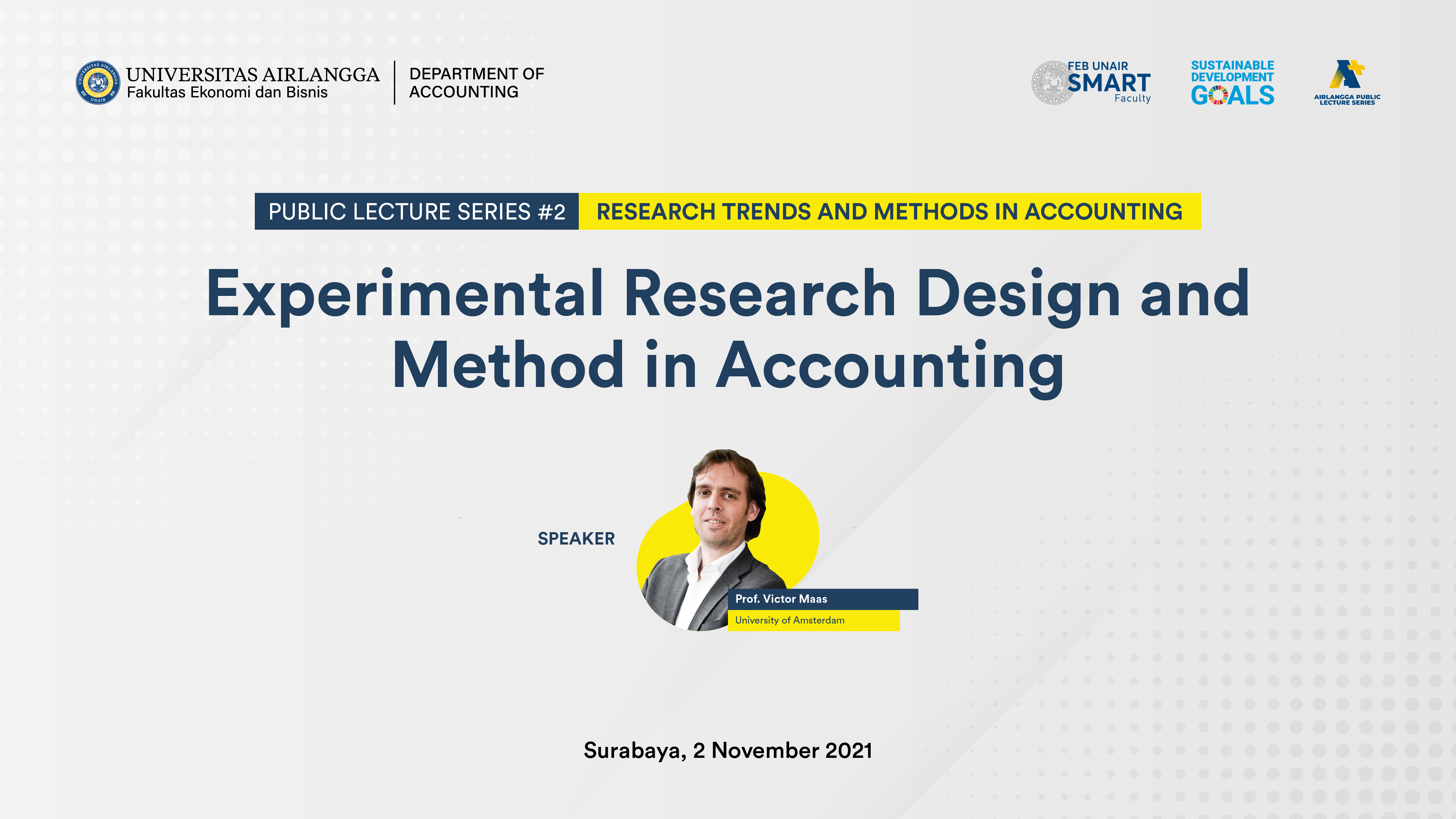Professor of Accounting in The University of Western Australia, David Gilchrist, argued that Professional Skepticism is more than a state of mind and it is important to be done by people in organizations during the 5th Guest Lecture session with the theme: Professional Scepticism in Public Sector Finance Governance and Audit on 21st June 2021. The session was moderated by one of the lecturers of Accounting in Universitas Airlangga, Dina Heriyati.
Professional skepticism is crucial and professional ethics is the subset of professional skepticism. Fundamental principles of professional ethics. professional skepticism, such as maintaining integrity, objectivity, professional competence and due care, confidentiality and professional behavior.
He mentioned the difference between professional judgement and professional skepticism. Professional judgement involves the application of relevant training, knowledge and experience in making informed decisions about appropriate courses of action. On the other hand, professional skepticism is an attitude that includes a questioning mind, being alert to conditions indicating possible misstatement and critically assessing audit evidence.
“Professional skepticism is about maintaining a questioning mind. We try to get one evidence, but then we also compare it to other evidence to make sure that makes sense.” Said David. “It also means not taking things at face value, just because you say this to me, it doesn’t mean that I take everything you say as being absolutely correct, it also doesn’t mean you are trying to mislead me, but it means we as humans need to be aware that we all make mistakes and therefore I need to make sure that there is some efficacy in the information.” He added. He also said that employing your experience and knowledge effectively is important in professional skepticism, because we can see more of what is going on. The final point is making sure for yourself.
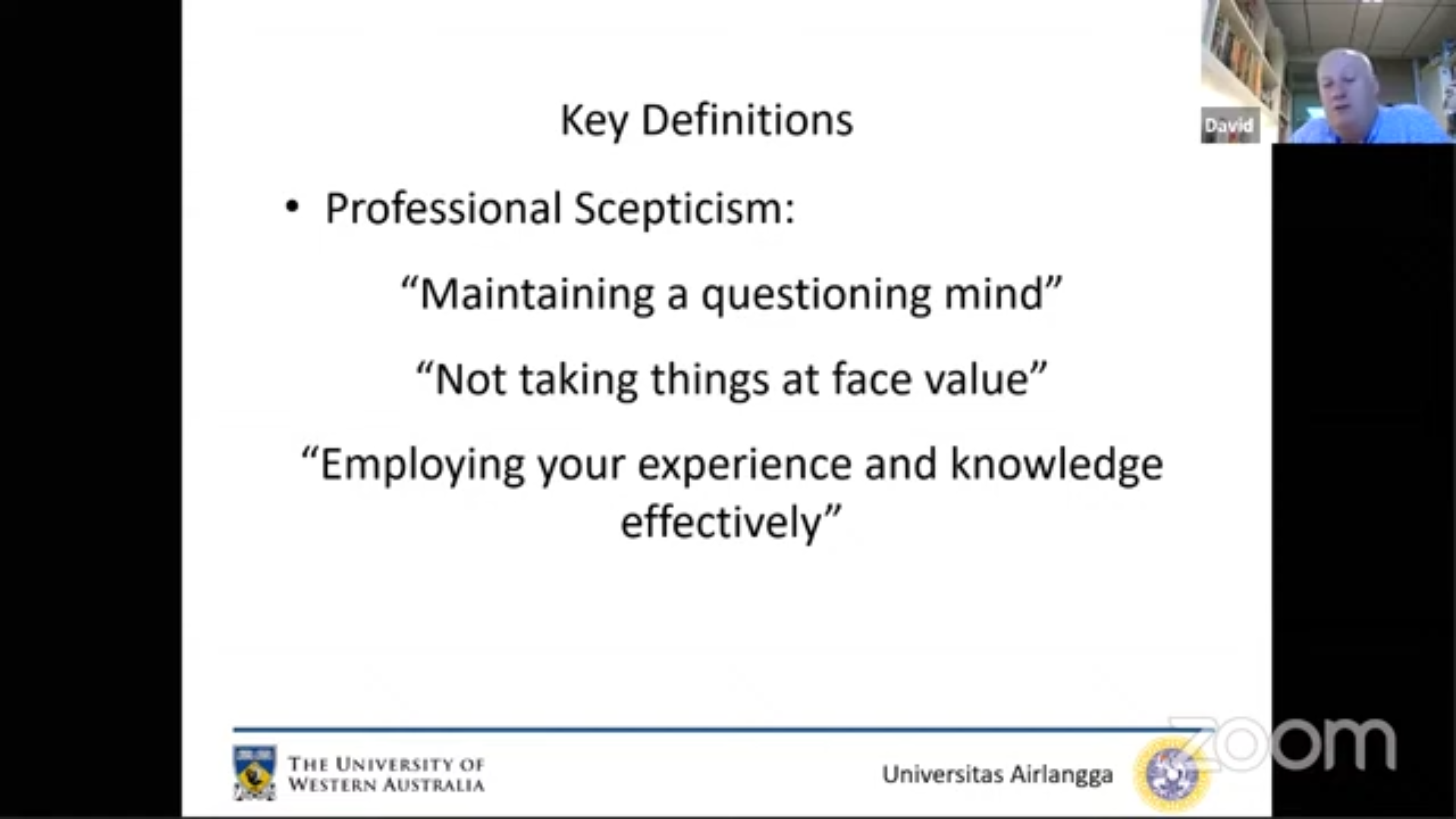
He emphasized that professional skepticism is not being antagonistic, it is not about disrespecting clients or colleagues, but it is about having a questioning mind. It is also not about being aloof or aggressive and it is not about disbelieving, it is about trying to make sure you feel comfortable with the evidence or information you have. It is important for employers to understand professional skepticism because it is part of being professional, part of acting ethically. “It is important for you and your colleagues to understand, and also crucial within the accounting teaching framework, because accounting lecturers always encounter student assessments in various forms, they need to make sure these students are doing the right thing.” He explained.
He stated that professional skepticism relies on the understanding of entity and environment, the assessment of business risk and inherent risk, materiality, experience gained from various situations, source and reliability of information available and persuasiveness of information. The reliability of information is influenced by nature and source: information from sources outside an entity is more reliable than evidence obtained solely from within the entity, informations generated internally is more reliable when the internal control structures are effective, informations obtained directly is more reliable than evidence obtained from client, information in the form of documents or written representations is more reliable than oral representations and informations provided by original documents is more reliable than evidence provided by photocopies or facsimiles.
He also explained that there are indicators and signs of information where we need to implement professional skepticism. The first one is in terms of integrity of management, we need to look at reputation, prior disputes, legal issues, limitation to access to records and pressure to reduce fees. In terms of management experience, knowledge and changes during this period, there are poor business decisions that have been made, inappropriate accounting policies, lack of proper review, lack of internal controls, slow identification of business risks/opportunities and impact on corporate governance. In terms of unusual pressure on management, there are remuneration linked to performance, meet or beat analysts forecasts, impact on share prices, procurement of additional capital, meet bank covenants and slowing industry/declining demand and others. There are also financial indicators such as heavy reliance on short term borrowings, denial of trade credit by suppliers and negative operating cash flows. There are also operational indicators that need to be checked.
This guest lecture is available on the Departemen Akuntansi's YouTube Channel
(BLQ/DNH)



